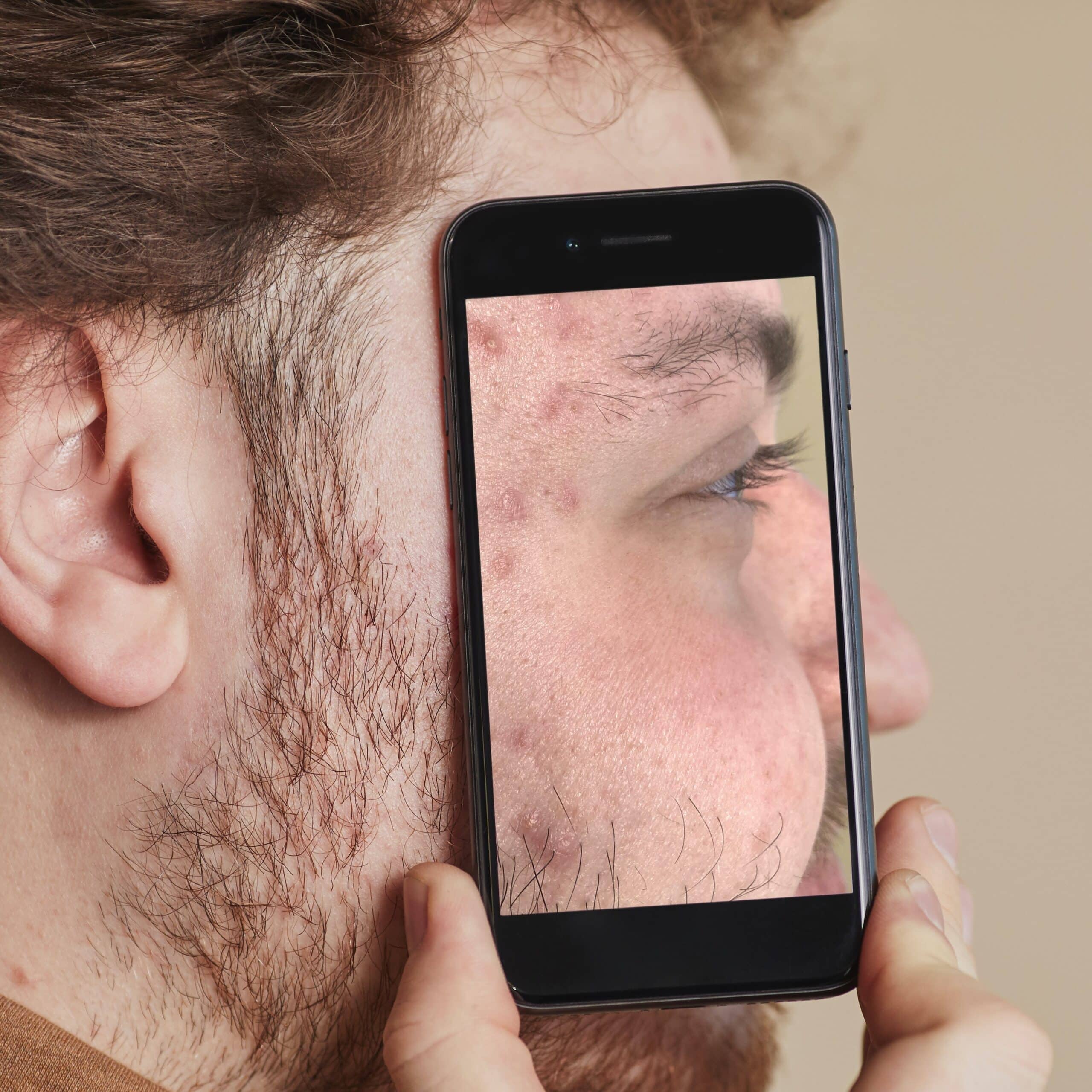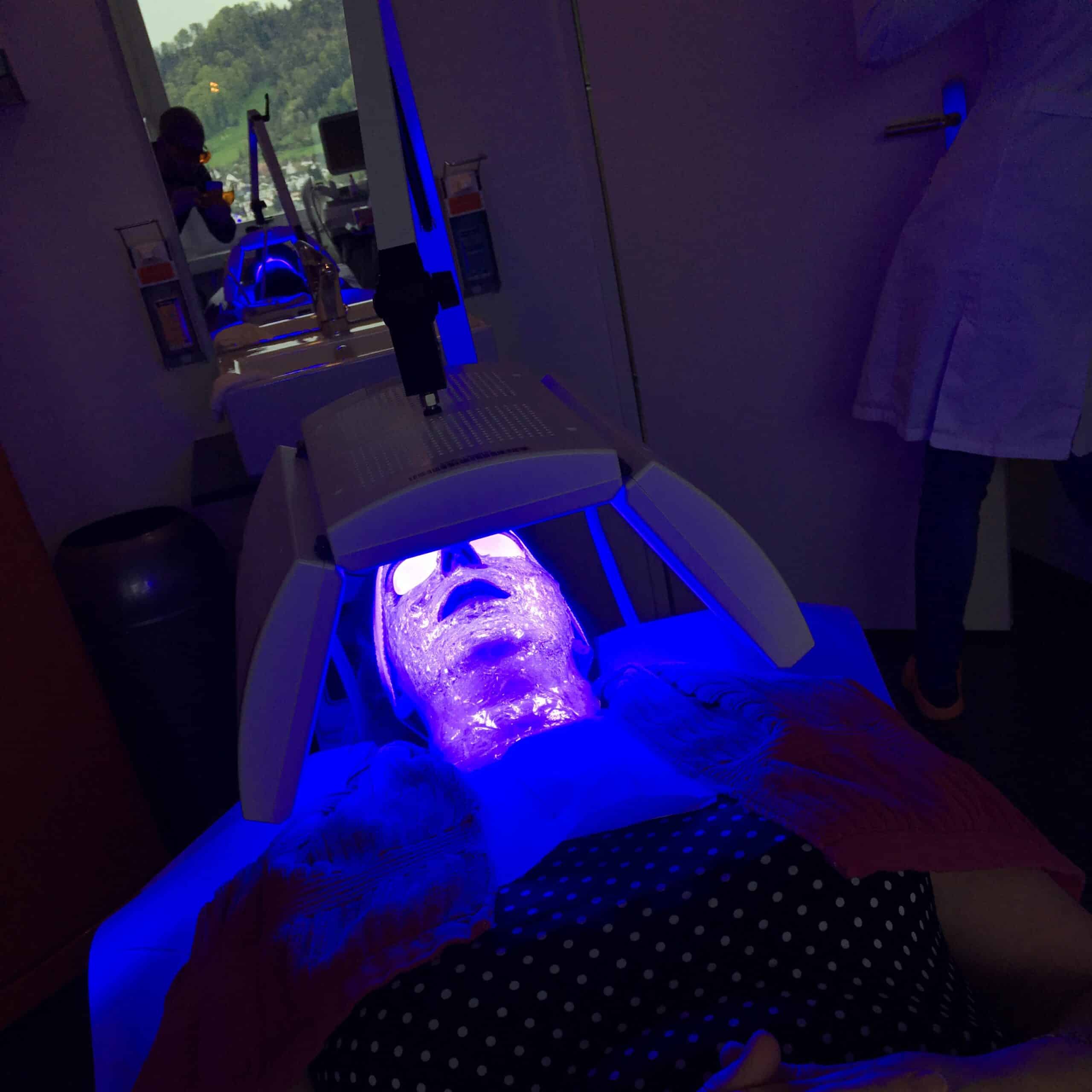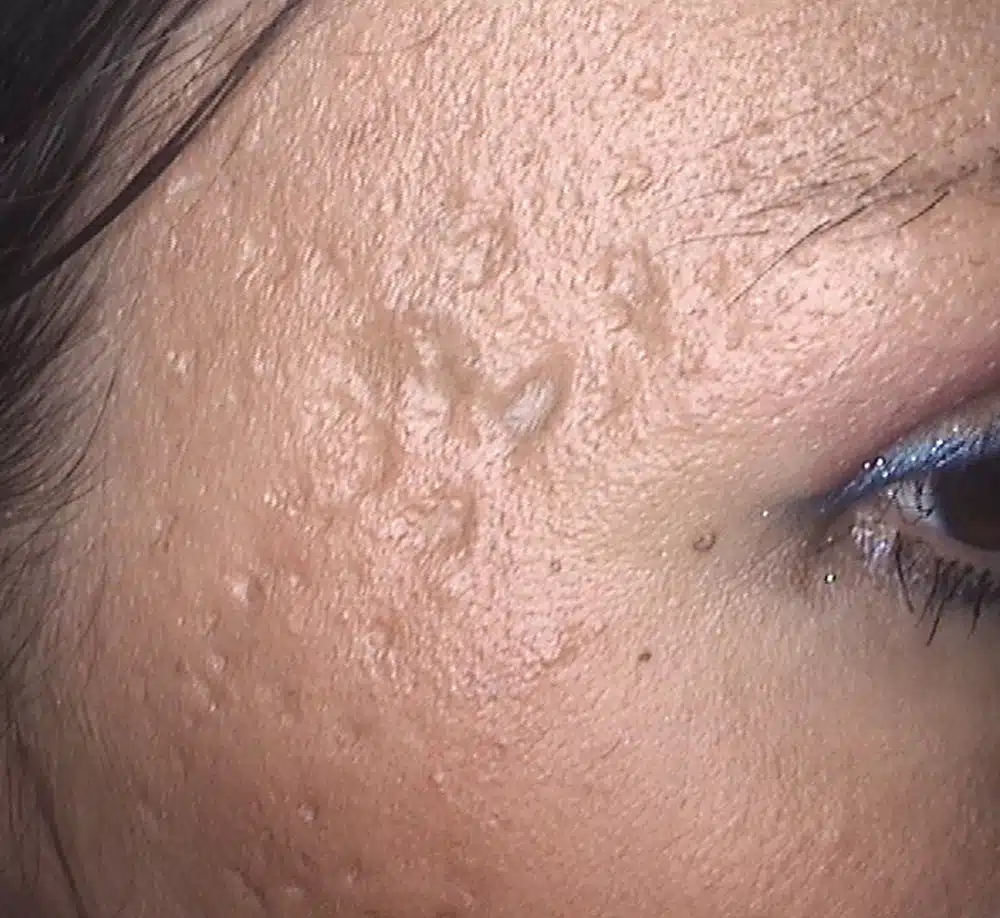While acne used to be a more or less harmless adolescent disease, today patients also visit us in their middle age. Even 50-year-olds with still active acne are not rare. The spectrum of therapeutic options has expanded and the guidelines for classic acne therapy are no longer the same as they were 20 years ago. Since the pimples and pustules mostly affect the face, acne can cause constant psychological stress and strain, which in turn promotes the formation of pimples - a vicious circle.
As the disease is chronic and usually relapsing, long-term therapy is essential. There are various studies that provide us with information about the frequency of the disease:
- In Germany, 70 - 80% of all adolescents have acne of varying severity.
- In a French study, the prevalence of acne in 24- to 40-year-olds was 41%.
- In a British population study of women over the age of 25, the prevalence of acne was 54%. Late acne, i.e. acne in adulthood, affects more women than men.
Appropriate acne treatment is always individually tailored to the skin and designed after a thorough examination of the skin condition. Manual cleansing, light therapies and special medications can help. In addition, adjustments in the care routine or in the general lifestyle may also be necessary to get rid of the annoying pimples.

What is acne?
Acne is a collective term for diseases of the sebaceous glands and hair follicles, which manifest themselves as pimples, pustules and blackheads.
The sebaceous glands become keratinized and can become blocked, causing the sebum to build up. If more propionibacteria enter the sebaceous gland, an inflammation can develop, which is perceived as a pimple.
If these inflammations are treated unprofessionally or the pimples themselves are squeezed out, acne scars can also occur in severe cases because the connective tissue of the skin is destroyed and "skin craters" become visible. It is therefore always better to have acne assessed by a dermatologist.
Treatment: What helps against acne?
Mild acne or isolated pimples can often be controlled with a suitable cream or regular washing of the face. It is important never to squeeze the pimples yourself! This increases the likelihood of developing acne scars. At Hautwerk, we offer professional cleanses and facials that will help you with mild acne.
Medicinal agents can be used to treat milder forms of acne particularly well. Efficient active ingredients such as antibiotics, retinoids, salicylic acid or benzoyl peroxide can inhibit inflammation and fight bacteria. These drugs can be found in various forms, from tablets to ointments. For the perfect choice, we will advise you on this on a case-by-case basis.
In the case of persistent acne, major measures are often required, and individual therapy is necessary for each affected person. The therapy is selected according to the severity of the acne, the skin type and the drug tolerance. Light therapies are suitable as gentle and non-invasive treatments for moderate to severe acne. In our practice, we use three different light therapies:
- The Kleresca® Bio-Photonic is a treatment with a unique light conversion system that uses multi-wavelength LED light in combination with a special photoconversion gel to allow the light to work deep within the skin. It helps to destroy acne bacteria and, by stimulating collagen production, initiates the healing of Acne scars in.
- ACePlus treatment (photodynamic acne therapy) combines three different ranges of wavelengths or techniques that kill acne bacteria, reduce sebum production and stimulate the skin's healing processes.
- Celluma LED therapy also allows treatment with three different wavelengths, fighting acne bacteria, decongesting inflammation and promoting wound healing.
The Light therapies can often be combined with a medicinal treatment (e.g. isotretinoin) to achieve optimum results. We will also give you professional advice on your daily skincare routine and explain how you can avoid any contraindicated products.

What can you do yourself against acne?
Smoking can promote acne and should therefore be avoided. Avoid foods with a high glycemic index and dairy products. These can lead to nutritionally elevated insulin and IGF-1 releases, which in turn can promote seborrhea and keratinization in the follicle. Snacks in between meals and break snacks should be avoided. Likewise, sugared beverages should be completely avoided.
For the countless preparations are available for therapy. The art is to analyze the individual problem and to initiate a consistent therapy that is appropriate for the therapy appropriate to the skin type.
What should you need to know here?
- Therapy with tablets should be performed only in severe forms of acne.
- UV rays improve acne, but should no longer be used because of the unfavorable risk-benefit profile. So: No high-altitude sun for acne!
- Antibiotics should be used with great caution because bacterial resistance can render therapy ineffective over time.
- The prescription of isotretinoin is reserved for severe forms of acne. For women, a pregnancy test before taking the tablets and strict double contraception during the period of use are essential.
- Alternatively, or in case of failure of classical therapy, a special light therapy can be applied. This biophotonic therapy called Kleresca has been able to deliver convincing results several times in recent years. Our practice has been performing the therapy since May 2016. More than 2500 treatments have been performed in the meantime.




